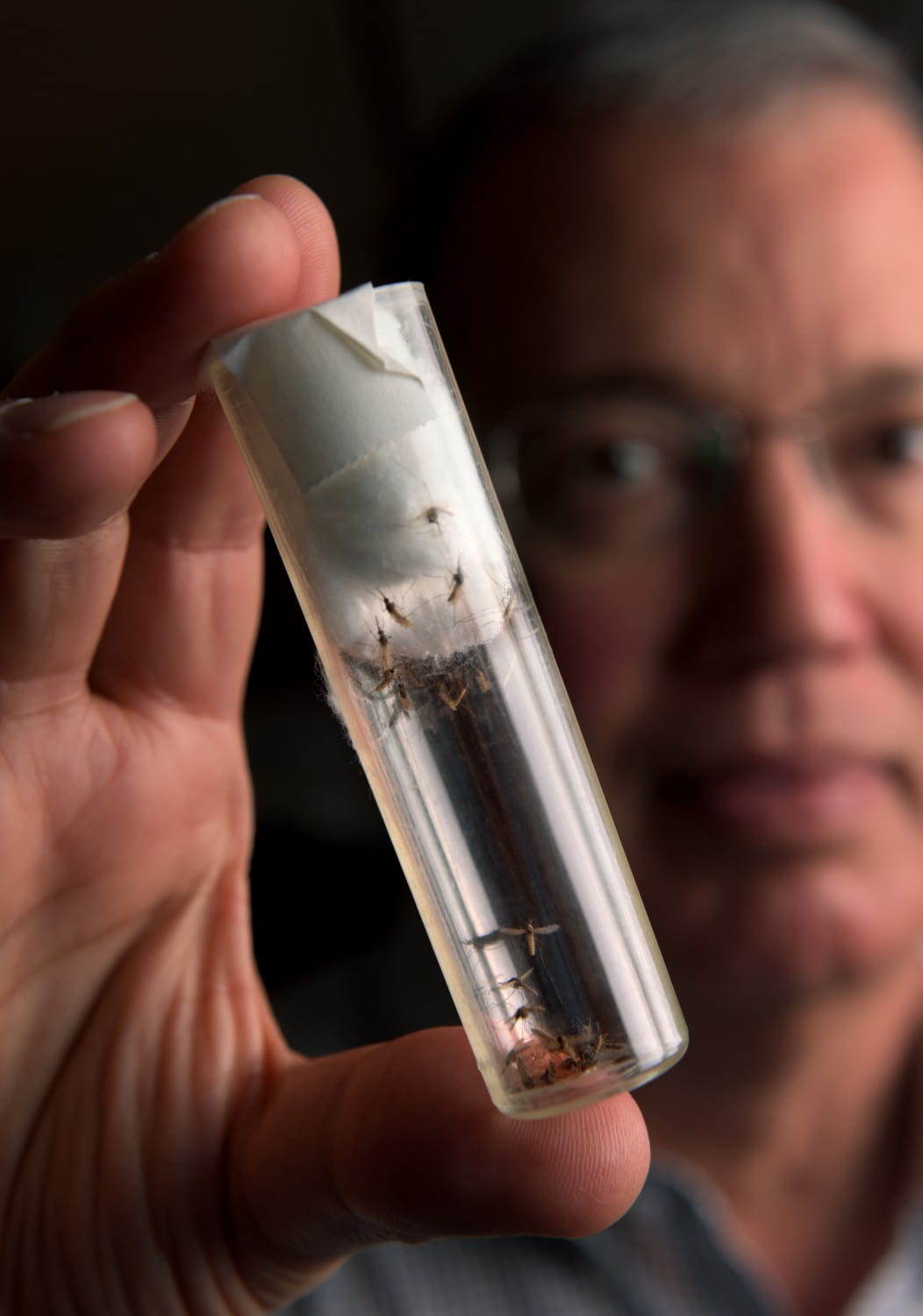Stopping malaria … one mosquito at a time
UCI vector biologist Anthony James and colleagues have developed a genetically modified insect model blocking transmission of the disease – and it may also work on Zika

Anthony James doesn’t dislike mosquitoes. He just doesn’t want them to transmit malaria.
The University of California, Irvine vector biologist has earned international acclaim for tinkering with mosquito genetics to prevent diseases such as dengue fever and malaria.
The impact of his work could be considerable. Millions of people around the globe are sickened by or die from mosquito-borne ailments, and new insect models that block this transmission could help dramatically improve public health in some of the world’s poorest areas.
In 2000, James’ team was the first to create a genetically modified mosquito model. His latest effort is his most promising yet, and it’s gaining widespread attention.
He and colleagues from UC San Diego employed a revolutionary genome editing method called Crispr-Cas9 to insert anti-malaria antibodies into a DNA strand of male mosquitoes that controls the development of reproductive organs, rendering them incapable of transmitting malaria.
The researchers found that this anti-malarial trait was successfully passed on to 99 percent of the progeny, an astounding number made possible by the Crispr-Cas9 technique. In previous mosquito models genetically modified by James and others via different methods, only half the progeny inherited the anti-disease trait.
What this means is that the anti-malaria reproductive DNA could spread through a large mosquito colony much more rapidly, making the use of these altered insects in wild populations potentially much more effective.
Last November, the James team published its findings, which garnered great media and scientific attention. In choosing the Crispr-Cas9 method as the 2015 breakthrough of the year, Science magazine highlighted the UCI-UCSD work.
“This is a significant step,” says James, Distinguished Professor of molecular biology & biochemistry and microbiology & molecular genetics at UCI. “We know the gene works, and we know this method allows us to efficiently create large populations of mosquitoes unable to transmit malaria.”
What’s next, he says, is to study the modified insects in the field – which will require, he estimates, tens of millions of dollars. These mosquitoes alone won’t stop malaria, James notes, but they could be part of a wider public health effort that may, at last, make a true difference to the millions who live daily under the threat of contracting this disease.
He adds that the same approach could be used to eliminate local mosquito populations that are spreading the Zika virus in South America, Central America and the Caribbean.
“If we were funded, we could do it now and have it ready in less than a year,” James told the science news website Stat. “It then would have to go through the field trials, but at least we would be working on something with a good chance of helping.”